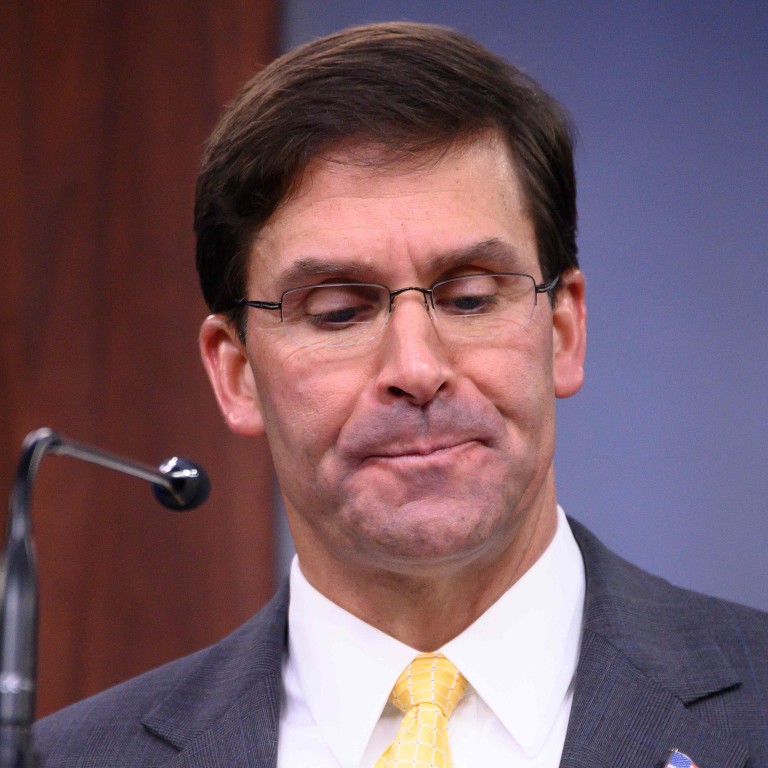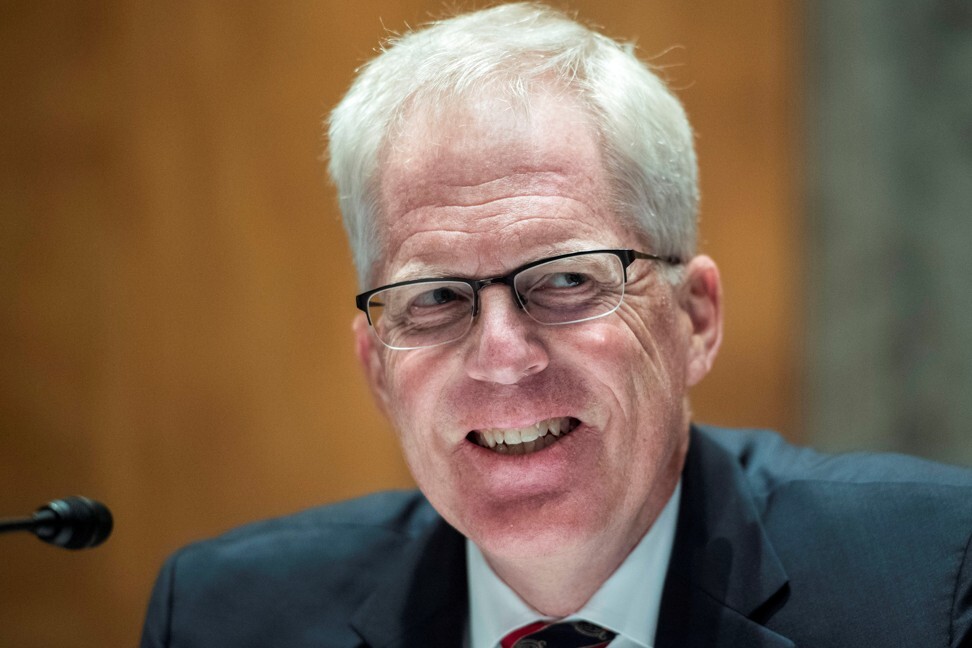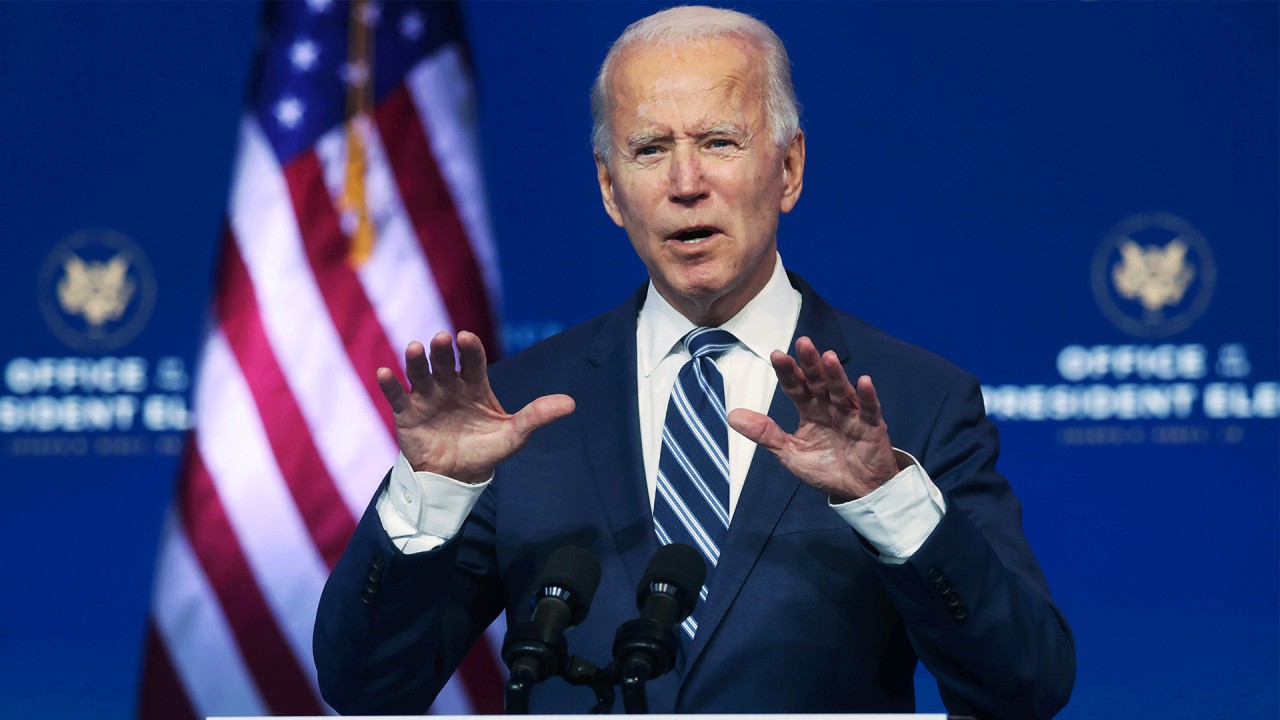
China-US tension: Beijing worries that Esper’s exit raises risk of military action and accidents
- Appointment of Christopher Miller as acting US defence secretary raises red flags, according to military observers
- Joint exercises this week between US marines and Taiwanese troops seen by Beijing as ‘challenging its bottom line’
The departure of Esper has long been expected – he had previously contradicted US President Donald Trump. But Beijing remains worried that tensions may spike now because the US official was seen as willing to communicate with Beijing.
The appointment of Christopher Miller as acting defence secretary is also a concern.
“Miller has a strong special forces background. He joined the special forces and commanded it and specialises in surprise attacks and adventure operations,” said Beijing-based military expert Zhou Chenming.

Esper was “stable” and could be engaged, Zhou said, adding that Miller’s background in special forces had led to speculation he would be more determined to take drastic action against China.
On Monday, US marines started a four-week training programme with their Taiwanese counterparts, which the Taiwanese Navy Command described as a “routine Taiwan-US military exchange and cooperation training to improve the combat capabilities of Taiwanese troops”.
The US marines spent two weeks in quarantine before their joint training drills started, indicating that the decision to send them to Taiwan was made well before the US election and before Trump fired Esper.
A source close to the People’s Liberation Army said Beijing had seen the joint training as “a move to challenge its bottom line”, and that there was the risk of conflict in the South China Sea.
“Taiwan’s [independence-leaning] Tsai Ing-wen administration is taking a salami-slicing tactic. It’s very dangerous when the American military also encourages Tsai to take a further move,” the source said.
Taiwan seeks US help to boost its defences as Beijing ramps up pressure
“The PLA leadership wonders if someone in the American military is going to take a risk and cause accidental conflicts with the Chinese military, especially in the South China Sea, following Esper’s termination.”
The US has ramped up its military operations in waters off the East and South China seas, where China has territorial disputes with Japan, Vietnam, Malaysia, the Philippines and other Southeast Asian countries. Beijing has criticised America’s “freedom of navigation” operations and flight surveillance near Chinese coasts and artificial islands, accusing the US of challenging China’s sovereignty and national security.
At the same time, the Pentagon has authorised US warship commanders to make a judgment call on whether to open fire when faced with risk.
US and China push to modernise ships’ weapons in race for naval dominance
Zhou said the American military’s intensive military operation and their rules of engagement had increased the risk of accidental conflicts.
Miller, 55, is a graduate of George Washington University and also holds degrees from the Naval War College and the Army War College. He served in the military from 1983 to 2014 and most recently served as deputy assistant secretary of defence for special operations and combating terrorism.
He also took part in combat operations in Afghanistan in 2001 and the second Iraq war in 2003, according to his National Counterterrorism Centre official biography.

01:14
President-elect Joe Biden says nothing will stop transfer of power
However, Drew Thompson, a former US defence department official with responsibility for managing US relations with mainland China and Taiwan, said he did not foresee a greater risk of accidental conflict between the two militaries before US President-elect Joe Biden is inaugurated on January 20.
“I don’t think Miller can do anything significant in the next two months,” he said. “His biggest legacy would be ensuring a smooth transition, serving the national interest in continuity and setting his successors up for success.”
Hong Kong-based military commentator Song Zhongping agreed, adding that the Trump administration would pay more attention to domestic issues.
“Trump is unhappy for the loss. He is not interested in wasting time on China-US diplomatic issues, letting the US military continue their routine operations and training in the Pacific,” he said.

